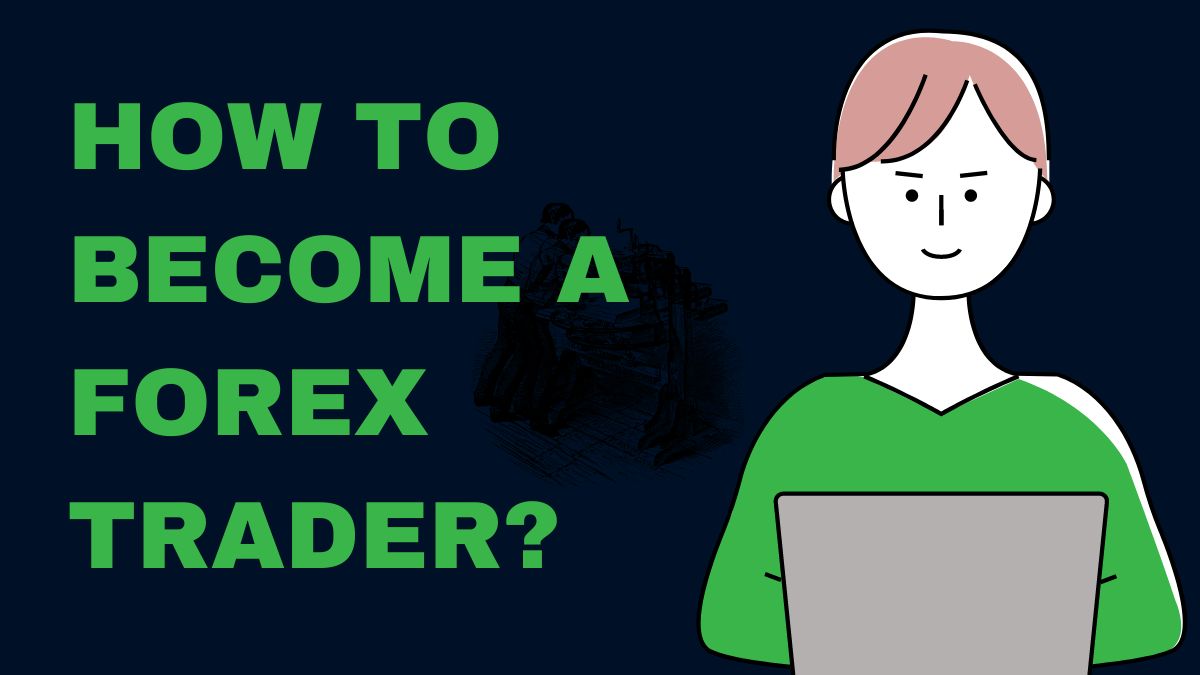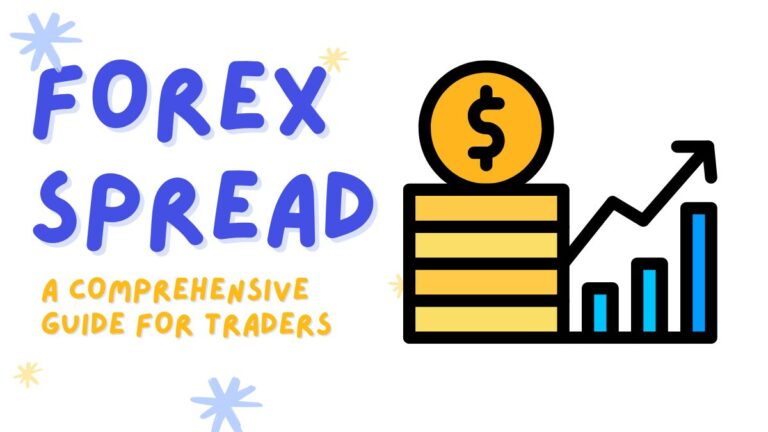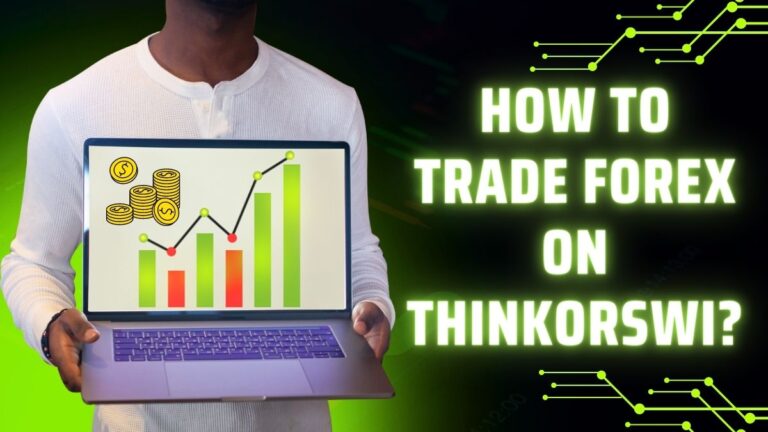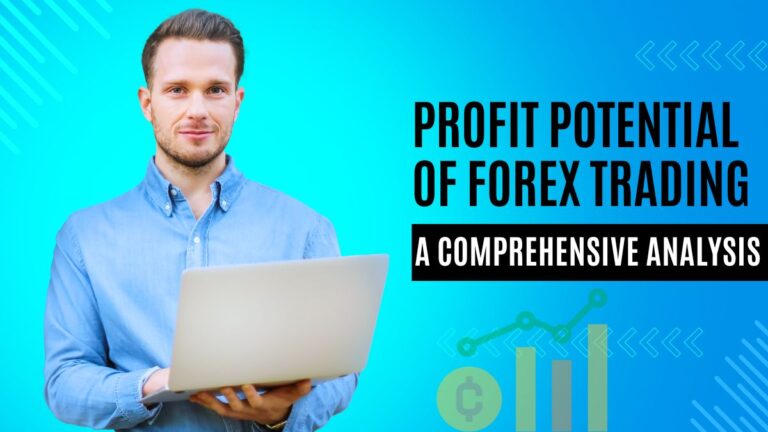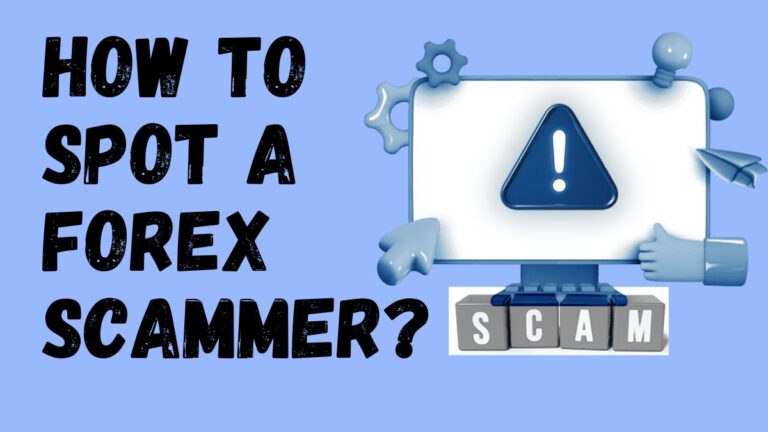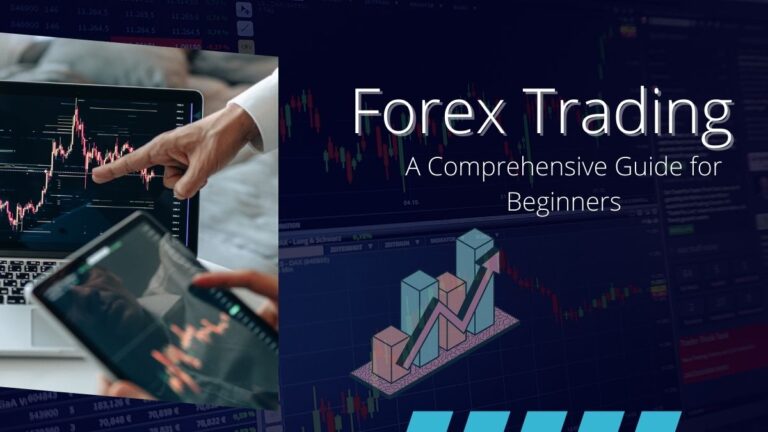A Beginner’s Guide: How To Become A Forex Trader?
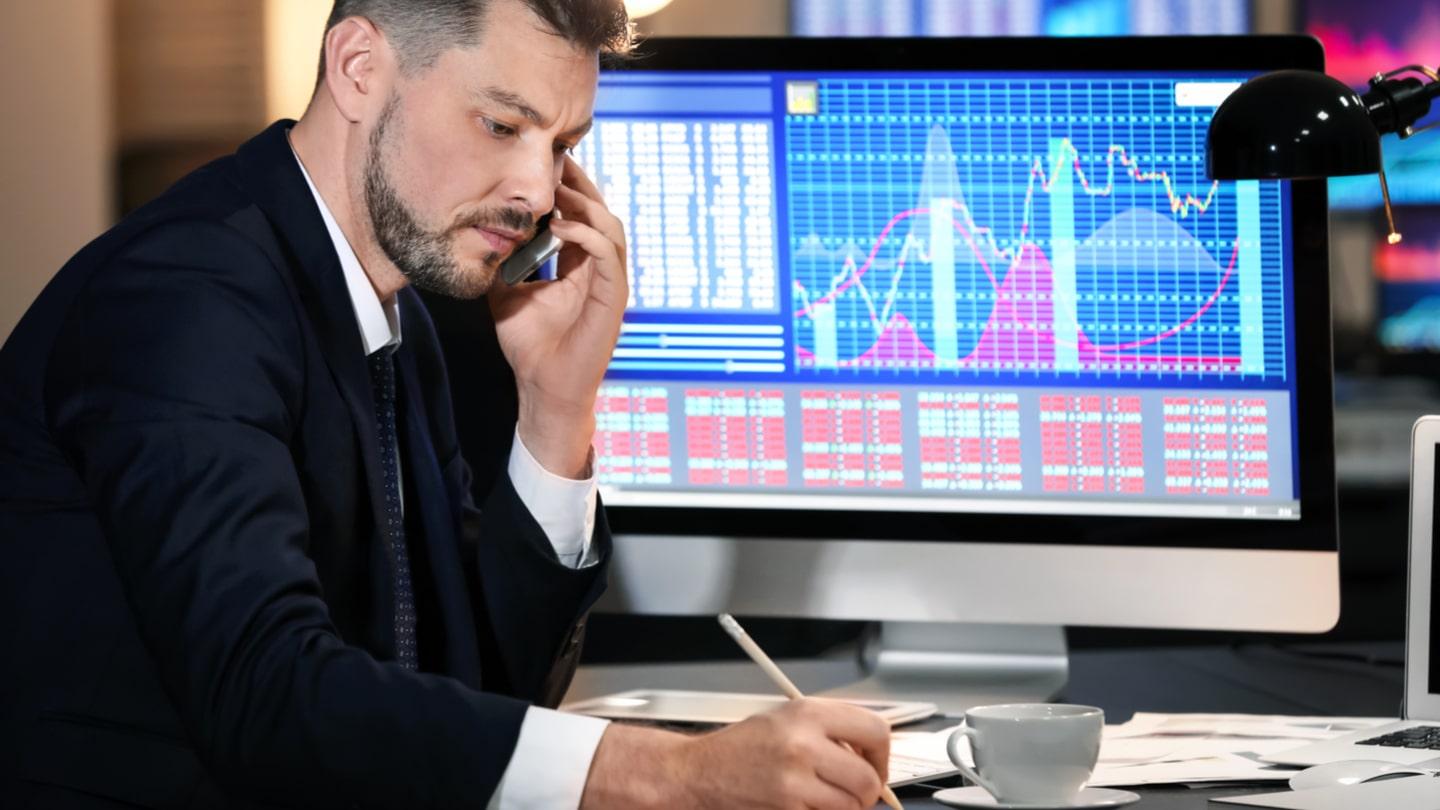
Are you ready to embark on an exciting journey into the world of Forex trading? Whether you’re a complete novice or have dabbled in other forms of investment, this beginner’s guide is here to equip you with all the essential knowledge and skills needed to become a Forex trader.
Join us as we unravel the mysteries of the foreign exchange market, uncover valuable tips from seasoned professionals, and empower you to make informed decisions that could potentially yield remarkable financial gains. It’s time to dive headfirst into this exhilarating realm and pave your way toward becoming a confident and proficient Forex trader!
Table of Contents
What is Forex Trading?
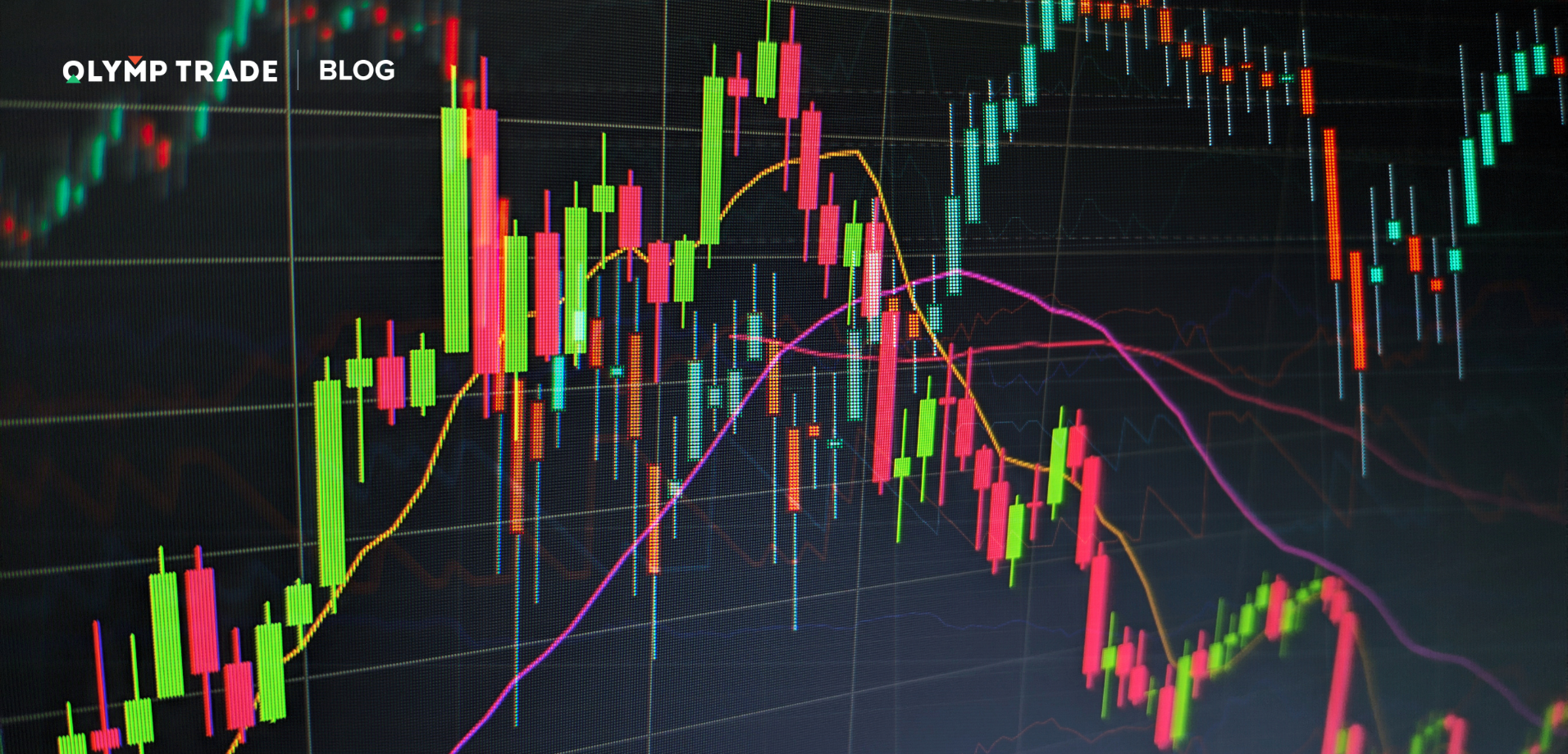
Forex trading is the process of buying and selling currencies by impersonating other traders. Currency traders use a variety of analytical tools to predict the price movements of various currencies. Forex trading can be profitable, but it can also be risky.
To become a forex trader, you need to have access to a computer with forex trading software and an account at a foreign currency exchange. You will also need to understand the basic principles of forex trading and how to use technical analysis.
What are the basic principles of forex trading?
The basic principles of forex trading include understanding supply and demand, risk management, and trade execution.
When you buy a currency, you are adding to the supply of that currency. This increases the price of that currency, and it becomes more difficult to buy that currency. Conversely, when you sell a currency, you are taking away from the supply of that currency. This decreases the price of that currency, and it becomes easier to buy that currency.
In addition, forex traders need to understand risk management. Risk management is about understanding how your investment portfolio is affected by everyday market fluctuations. Forex traders need to be aware of potential losses and know how to limit their exposure to those losses.
Finally, forex traders need to understand trade execution. Trade execution involves sending orders into the foreign exchange market promptly and executing those orders correctly. If you place an order without proper research or analysis, it may not be executed properly and may result in a loss for your account.
The Basics of Forex Trading
Forex trading is the practice of buying and selling currencies, stocks, commodities, or derivatives with the hope of making a profit. It can be a highly speculative activity, which is why it’s important to understand the basics before getting started.
First, you need to decide what currency you want to trade. You can trade forex markets throughout the world, but for this beginner’s guide, we’ll focus on the U.S. dollar/euro exchange rate. To start trading, you need to open an account with a Forex broker. Once you have an account with a broker, you can deposit money into your account and start trading.
When you’re ready to buy currencies, there are several things you need to consider:
- The exchange rate: This is the price at which one currency is exchanged for another on the forex market. You can find this information on financial websites, newspapers, or by using specialized Forex tracking software.
- Supply and demand: The supply of a currency depends on how much exists in circulation (ie how many physical bills are out there), while demand refers to how much people are willing to pay for that currency (ie where they want it deposited). These two factors influence the exchange rate because there’s always more demand for strong currencies and less for weak ones.
- Political instability: When countries experience political unrest (like in Syria), their currency may lose value against other currencies as investors worry about the stability of the country’s economy.
- Economic indicators: The U.S. Federal Reserve releases monthly reports on economic conditions in the country, which can affect the value of the dollar and euro.
- Weather: Forex traders often factor in weather predictions when making currency decisions because bad weather can cause transport problems and raise prices for goods imported from abroad.
When you’re ready to sell currencies, there are a few things you need to consider:
- The demand: How much currency is currently being traded on the forex market, and at what price?
- The supply: How many currencies are available for purchase? Again, this information can be found on financial websites, newspapers, or by using specialized Forex tracking software.
- The exchange rate: The price at which one currency is exchanged for another on the forex market.
- The market conditions: Are buyers and sellers bidding up or down the price of currencies? Is there heavy volume (meaning lots of people are trading)? These factors influence the exchange rate because they determine how many buyers and sellers there are at any given moment.
- Commissions: When you sell currencies, you’ll typically have to pay a commission
How to Become a Forex Trader?
Forex trading is a highly complex and risky business, but with the right forex trading strategies and tools, you can make significant profits.
Before you begin forex trading, it’s important to understand the basics of the market. Forex markets are divided into three different types: spot, time, and binary options. Spot forex trading is the most common type of forex trade and involves exchanging real-world currencies against each other on a moment-by-moment basis. Time and binary options trades are also common, but they involve different risks and rewards.
To become a successful forex trader, you need to have strong financial literacy skills. You need to be able to identify patterns in market data and make informed financial decisions based on that information. And finally, you need to have impeccable analytical skills – enough to crunch numbers quickly and identify trends within the data sets.
There are many forex brokers out there competing for your business. Do your research before choosing one – find a broker that has good customer service ratings and reviews, as well as offering competitive rates and well-thought-out features for traders of all levels of experience. Once you’ve selected a broker, be sure to create an account so you can start trading.
When it comes to making money in forex trading, patience is key! TheForexNewsguide offers some helpful tips on how not to lose your cool when things don’t go your way. As with any financial investment, forex trading can be risky – so make sure you have a solid understanding of the risks involved before starting to trade. And remember to always look for professional advice if you need it!
Resources for Becoming a Forex Trader

Looking to get started in forex trading? There are many resources available to help you on your journey, from online tutorials to books and software. Here are some of our favorites:
- Forex Trading Academy: This website provides an extensive range of learning materials, including video lessons, articles, and interactive tools. You can also join their community and interact with other traders.
- FXCM Encyclopedia: This resource provides detailed information on forex trading strategies, tools, terms, and more. You can find descriptions of almost all popular forex brokers here.
- The FX Guidebook: This book provides step-by-step guidance on how to trade forex successfully. Written by two experienced traders, it covers everything from choosing a broker to setting up a EUR/USD strategy.
- Forex for Dummies (3rd Edition): This book is written for beginners and will teach you the basics of trading with forex. It includes sections on forex terminology, market analysis, signals & trends, charting & analysis, and more.
Conclusion
Becoming a forex trader can be an incredibly lucrative career choice, but it does require some groundwork. In this article, we introduce you to the basics of trading forex and give you a roadmap on how to get started. We also provide resources so that you can continue learning and growing as a Forex trader. So if you’re considering making the switch to forex trading, read on for everything you need to know!
